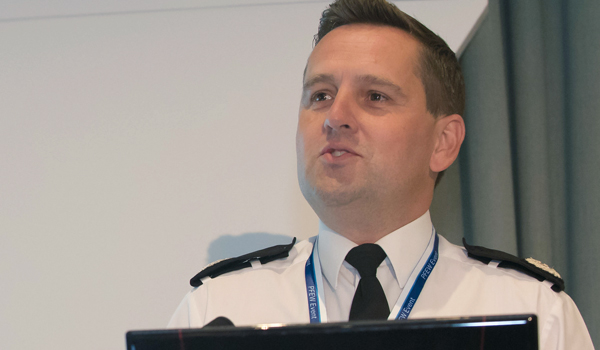Beyond acceptable risk
Charlotte Dowson says when mistakes have led to avoidable injury, a successful legal claim could help an officer get their life back on track and may help prevent future accidents from occurring.
Police officers and some members of police staff accept a certain level of risk in their profession. It is part of the job and can never be fully eradicated, and being injured in the line of duty does not automatically mean they have a civil claim for personal injury.
However, this article explores when the usual risks of the job become unacceptable and when making a claim for damages is the appropriate course of action.
It is important that officers, staff and their managers are aware of the legal ramifications in the unfortunate event that something goes wrong which could have been prevented.
This is important, as they may have sustained life-changing injuries and be unable to work. In these circumstances, the financial impact can be very significant. Indeed, more than £12 million has been paid in compensation for injuries in the past five years.
The availability of a personal injury claim to serving officers is not designed to hamper or impede the important duties that the police perform. A civil claim is not an exercise in establishing culpability or meting out punishments to individuals or forces, but rather to investigate negligence.
Concerns
Contrary to widespread misconceptions, there is nothing shameful about pursuing compensation through legitimate legal avenues where an injury has resulted from an officer or member of staff trying to perform their job. They may have concerns about being judged or bullied by colleagues for making a claim.
However, civil claims against the force often result in positive changes to policy, procedures and behaviours that can help prevent further accidents from taking place. Ultimately, this benefits everyone.
Workplace accidents can occur in a variety of circumstances. It is not possible to provide an exhaustive list here, but claims could be based on pursuing or apprehending suspects, road traffic accidents, assaults, falls from height, slips and trips, inadequate training (and accidents occurring during training exercises), provision of incorrect (or a lack of) personal protective equipment or accidents in and around the work premises, resultant of a hazardous work environment.
Sadly, fatal injuries can also occur. In circumstances where it is established that reasonable safety measures have not been taken which could have prevented injury, a claim in personal injury may arise.
Officers, staff and their managers need to know the steps they should take in such incidents. When someone sustains a personal injury they need to report the accident to their supervisor.
It is the responsibility of management to ensure details of the incident are fully documented. If there are any witnesses to the incident, managers and those involved should make sure details are retained as their account could be important in assisting case progression.
Fairly
Senior officers may be asked to handle an investigation into the circumstances of a serious personal injury. They will have a responsibility to make sure that the claims investigation procedure is handled thoroughly and fairly.
The best outcomes on both sides can be facilitated by open and transparent communication, especially in relation to matters involving human resources and occupational health.
Many people who have sustained serious personal injury are eventually able to return to work but may require reduced hours or amended duties on a temporary or permanent basis for them to do so. This should be facilitated as and where possible. It is in the best interests of everyone involved for an officer or member of police staff to return to work at the earliest opportunity, health permitting.
Too often, personal injury claims brought by employees against their employers can be dogged by animosity and proceedings can quickly become adversarial as a result. Human nature can dictate that ranks are quickly closed and relationships can break down. This ought to be avoided at all costs and by all parties.
It is an undisputed fact that meritorious claims are resolved far quicker and at a lesser cost where the parties cooperate and act in good faith. Most importantly, it will mean the injured party obtains appropriate timely support and treatment. This means their recovery is maximised and, where possible, their return to work accelerated.
Advice
Anyone who has had the misfortune of suffering an injury following an accident in the course of their employment should obtain expert legal advice as soon as possible.
For an injured person to succeed in a civil claim, it is necessary to establish that a duty of care was owed to that person, that the duty was breached and that the breach resulted in a foreseeable loss. All police officers and staff are owed a duty of care by the force. The police, like all employers, must adhere to workplace regulations to ensure, in so far as they are able, the safety of all who work for them. There are exceptions that apply to the police with operational decisions taken in the heat of the moment under pressure, but these are better addressed on a case-by-case basis by a solicitor.
A civil claim is designed to put an individual back into the position they were in before the accident.
It is possible to recover damages for financial losses as well as for the injuries themselves and treatment costs.
A solicitor will advise on the nature of medical evidence required to support a claim based on the injuries sustained. The injured party will want to keep a record of any financial losses incurred as a result of their injuries, including any loss of earnings and associated expenses. The injured party can also be compensated for any additional care and assistance provided by friends and family after an accident.
If the parties involved in the claim can resolve liability in the early stages of a claim, a collaborative approach becomes easier and, together with the relevant force or insurer, they can work together to identify the claimant’s practical, medical and therapeutic needs.
As stated above, the benefit of early rehabilitation is the potential for a better prognosis and an earlier return to work. Where this is not possible, achieving maximum independence to improve quality of life must be the priority. Again, this benefits all parties to the claim.
In summary, accidents will always happen and not all of them result in claims. However, when mistakes have led to avoidable injury, candour is always advisable. A successful legal claim could help the officer or member of staff get their life back on track and may help prevent future accidents from occurring.
Charlotte Dowson is a Senior Solicitor in the Complex Injury team at Bolt Burdon Kemp. She has specialised in helping people who have sustained serious injuries since September 2013 and specialises in workplace accident claims in which workers have sustained serious injuries, such as traumatic and elective amputations, crush injuries, complex orthopaedic injuries and where they have developed psychological conditions. She has also assisted the families of workers who have suffered fatal accidents and has experience of inquests.





